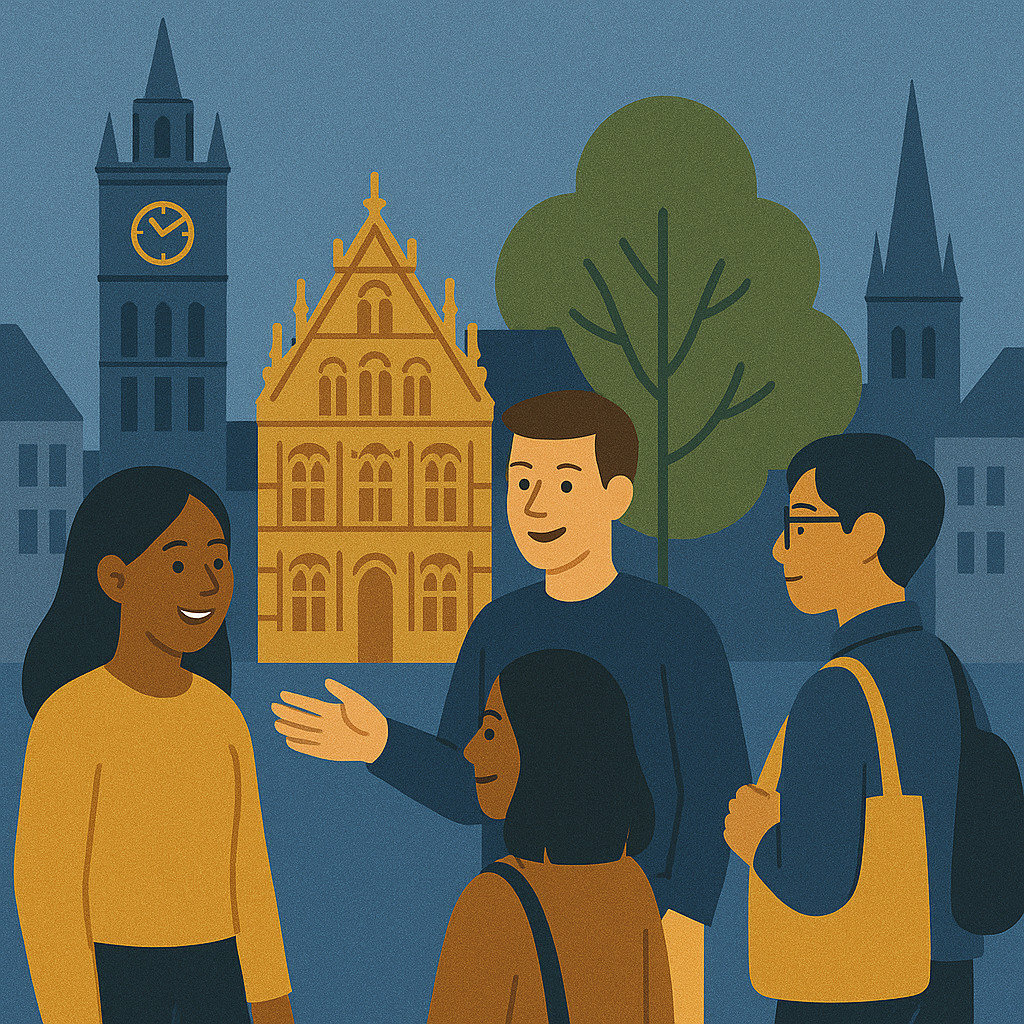Tech4Europe
Explore how technology and innovation can address European challenges and shape EU digital policies.
🤖 Digitalisation, AI and Democracy - Rights, rules and robots: this is where it begins.
A European learning experience on technology, power, and responsible citizenship
🎯 What is the programme about?
Digitalisation, AI and Democracy is not a coding bootcamp, a seminar on tech trends, or just another lecture about the future. It’s a space where students like you come together to ask the questions that really matter. Who controls the algorithms that shape our lives? How does artificial intelligence challenge our ideas of fairness and freedom? And what can young people do when technology moves faster than democracy?
Over five days, you’ll dive into the realities of digital transformation in Europe — from how the EU regulates tech giants to how deepfakes, bots and outrage-driven algorithms shape our debates. You’ll learn how AI works, how misinformation spreads, and how people just like you are building tools, policies and movements to make the digital world more just, transparent and human.
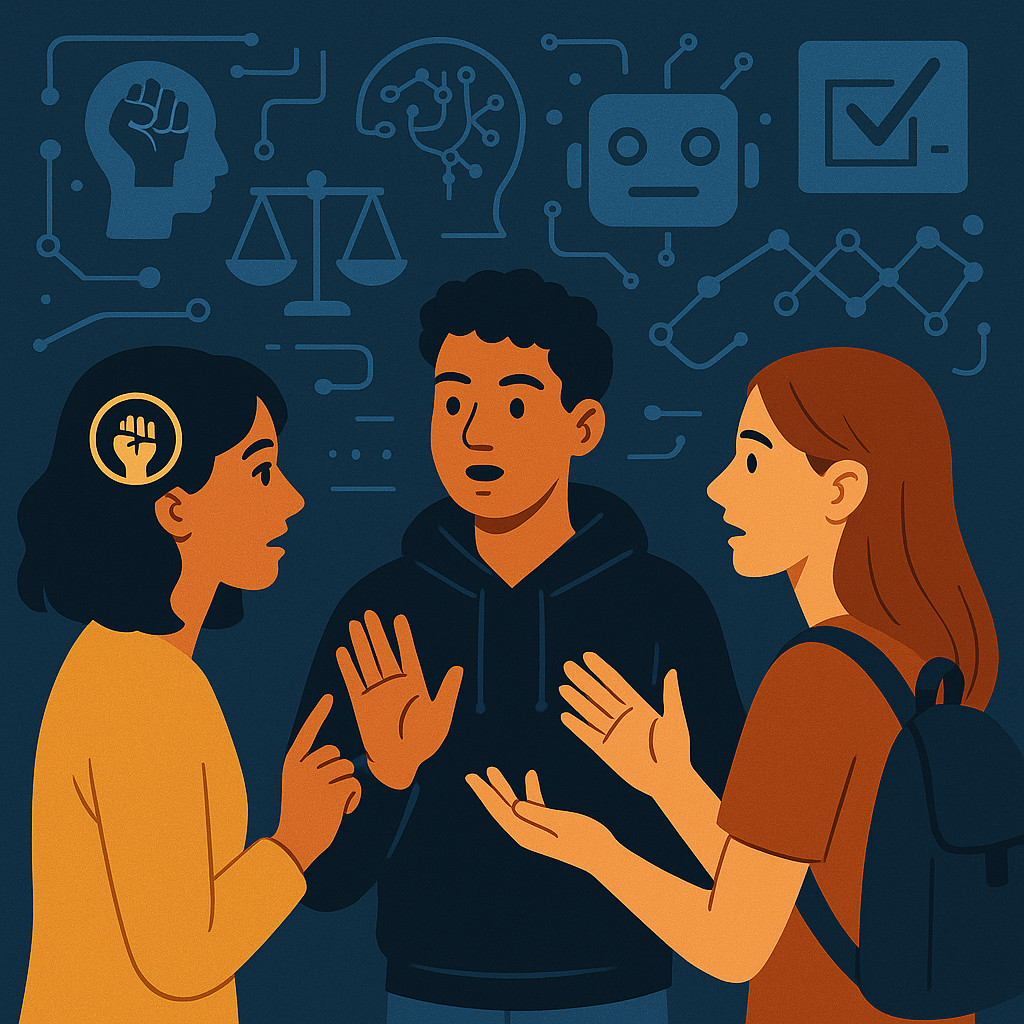
This programme is for students who want more than digital skills — it’s for those who want to understand power, ask better questions, and take responsibility in an age of complexity. You’ll leave not just more informed, but more equipped: with new ideas, a community of peers, and the mindset of a digital citizen who knows they belong at the table — not just behind the screen.
The programme takes place in some of Belgium’s most vibrant and student-friendly cities — Leuven, Ghent, or Antwerp. These are not just beautiful places full of history, culture and energy — they’re also hubs of innovation, sustainability, and European thinking. Whether you’re walking through the medieval streets of Ghent, exploring a green campus in Leuven, or discovering creative districts in Antwerp, you’ll feel part of something bigger: a European experience that mixes learning with exploration, curiosity with connection. It’s not just about what you learn inside the room — it’s also about where you are, who you meet, and how much it inspires you to look at the world differently.
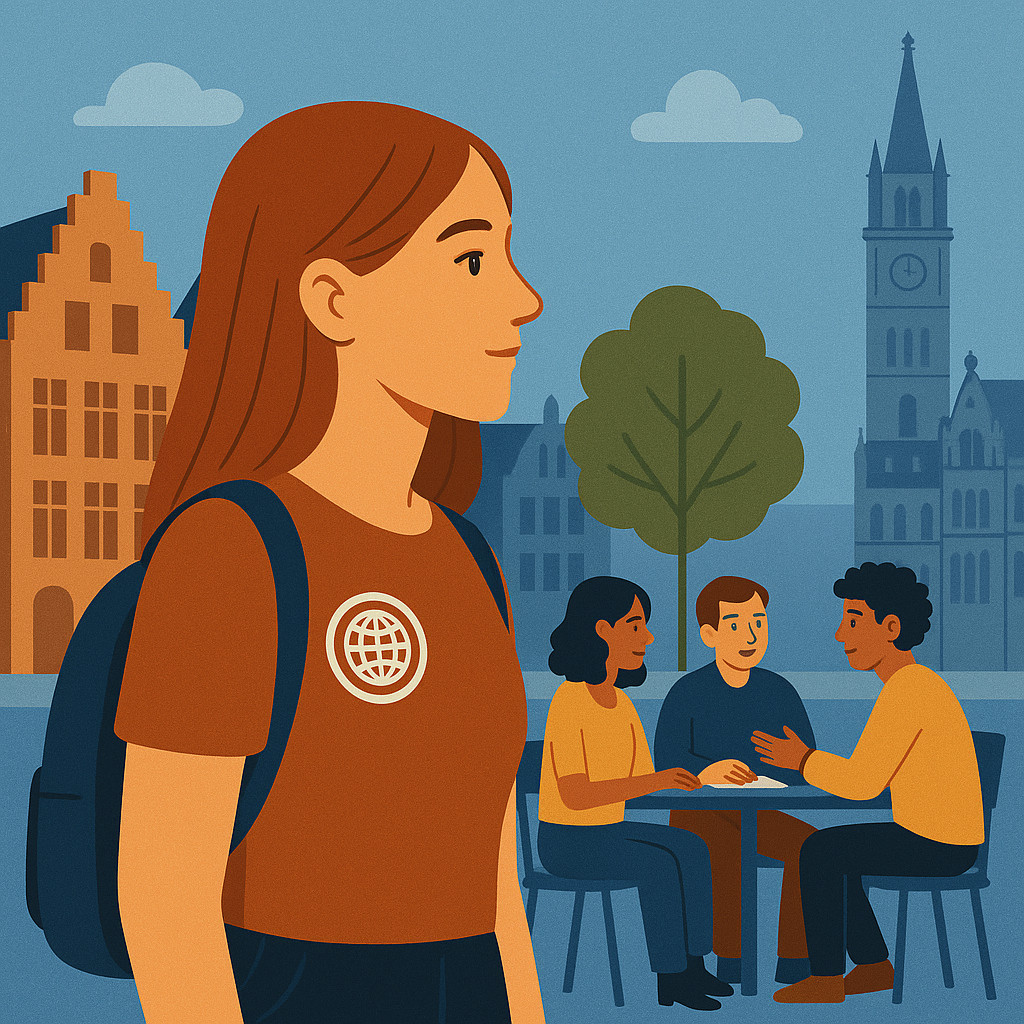
👥 Who is it for?
High school students
aged 15–18
University students
(Bachelor’s or early Master’s level) from any EU country
Passionate about technology, digital ethics, communication, journalism or public policy, curious, critical, and ready to explore how tech and democracy intersect.
What will your week look like?
From the very first day, you’ll be part of a European experience designed to challenge how you think, feel, and act about technology — not just as innovation, but as a force that reshapes power, rights, and democracy itself. You’ll explore how digital systems work beneath the surface: how data is collected, how algorithms influence behaviour, and how artificial intelligence raises urgent ethical questions. Through hands-on workshops, role-playing simulations, and open conversations with professionals in tech, media and policy, you’ll begin to see digitalisation not just as a technical process — but as a civic challenge.
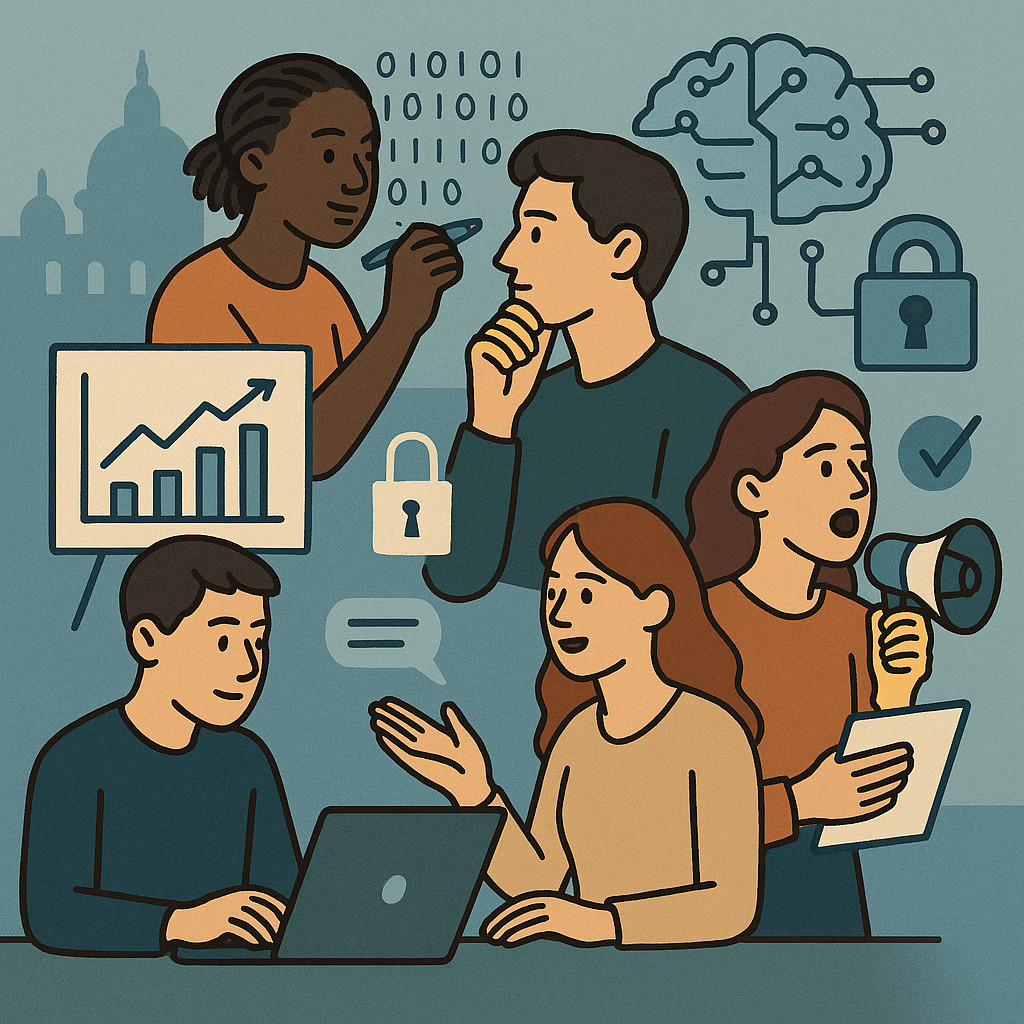
📘 Programme overview – key daily themes
Day 1 – What is digitalisation and why does it matter?
The first day is about grounding ourselves — not just in tools and terms, but in the reality we live in every day. You arrive in a bright, buzzing space filled with people like you: some quiet, some already questioning, all aware that technology surrounds us — and shapes more than we often realise.
We begin by unpacking what “digitalisation” really means. Not just screens and apps, but systems: invisible infrastructures that guide our choices, track our movements, filter our news, and even influence how we vote. Through short, interactive sessions and group reflections, you map your digital habits, trace the path of your own data, and ask where your autonomy begins — and where it might end.
There’s no coding, no pressure to perform — just open conversations, practical exercises, and space to be curious. You work in diverse teams to explore how technology affects education, health, justice, or identity. The message is clear: this is not just about innovation, it’s about power, responsibility, and participation.
In the afternoon, we will understand how digital transformation is shaping Europe — how laws emerge from conflict, how societies adapt to disruption, and how citizens can reclaim their space in the debate. By the end of the day, you’re not just someone who uses technology. You’re part of a group that questions it — and begins to imagine how it could serve people better. That’s where this journey starts.
Day 2 – What is Artificial Intelligence and who decides how it’s used?
The second day takes you beyond the familiar — into the world of systems that think, learn, and decide. You’ve heard of artificial intelligence before. Maybe you’ve even used it, without knowing. But today is about going deeper: What is AI really doing? Who programs it? And more importantly — who should be allowed to?
We start by breaking down the basics — but not from a textbook. In teams, you explore how AI works in practice: from facial recognition to recruitment algorithms, from predictive policing to smart assistants. Through interactive exercises and short challenges, you uncover how small pieces of code can influence big decisions — and how those decisions aren’t always neutral.
Then comes the hard part: should all uses of AI be allowed? Who sets the limits — engineers, lawmakers, companies, or citizens? In a fast-paced simulation, you step into the shoes of EU decision-makers debating a fictional (but realistic) AI law. You must balance innovation, safety, ethics and public trust. It’s not easy — and that’s the point.
In the afternoon, a guest speaker joins us — someone working on the frontlines of tech regulation, digital rights, or algorithm design. They don’t just talk about their job — they share the real dilemmas behind the policies: the moments where values, interests, and unknowns collide.
By the end of the day, AI is no longer just a buzzword. It’s something real, powerful, and political. And you’ve started learning how to think critically — not just as a user, but as a future voice in the digital debate.
Day 3 – What happens when truth breaks down? Misinformation, virality and democracy
By now, you’ve explored how technologies are built and how decisions are made. Today, you explore what happens when information itself becomes unstable — when the digital world stops helping us understand reality and starts distorting it.
The day begins with stories. Viral posts that changed elections. Fake health news that caused panic. Deepfakes that fooled millions. You don’t just look at examples — you analyse them. How did these messages spread so fast? Who benefited? What emotions were used, and what was the cost?
Then, you take on the challenge yourselves. In teams, you play two roles: one group tries to spread a fictional narrative using real disinformation tactics — clickbait, image manipulation, emotional framing. The other group has to detect, debunk, and defend. It’s intense, a little chaotic — and incredibly revealing.
In the afternoon, we meet people who face this reality every day. A journalist, fact-checker or activist working in digital media joins us to talk about what it means to chase truth in a world of bots, filters and pressure. You learn about the limits of content moderation, the dangers of outrage, and the difficult balance between free expression and digital responsibility.
By the end of the day, you’ll understand why truth is fragile in the digital age — and why protecting it is everyone’s job. You’ll start thinking differently about every post you see, every source you trust, and every link you share.
Day 4 – What skills do we need in a digital future? From critical thinking to creative action
After three days of asking hard questions, today is about building something new. The focus shifts from what’s wrong with the digital world to what can be changed — and how you might be part of that change.
We begin with a simple but powerful question: What kind of skills will matter in 2030? Not just for getting a job, but for staying human in a world of automation, distraction, and uncertainty. Together, you map the skills that can’t be automated: empathy, collaboration, ethical thinking, communication, and the courage to challenge the system when needed.
Then comes your mission: in small teams, you design a mini-project — a campaign, a tool, a creative idea — that addresses a digital challenge you care about. It might be a podcast about algorithmic bias, a digital guide for your school, a short video tackling misinformation, or a concept for a citizen consultation app. The only rule: make it relevant, make it real.
In between, you’ll hear from young professionals or innovators who’ve launched their own initiatives in tech, education, or civic tech. They’re not famous, not perfect — but they’ve started something. And that’s what this day is about: the moment you stop waiting for someone else to fix the system and realise you can build something, too.
By the end of the day, your team has a concept, a plan, and a story to tell. You’ve moved from analysing digital society to shaping it — even if just a little.
Day 5 – What does it mean to be a digital citizen? From knowledge to voice
The final day is about connecting all the pieces — and stepping into the role you’ve been preparing for all week: not just a student of the digital world, but a participant in it.
The morning starts with your voice. Each team presents their project — not to win a prize, but to share a vision. You explain your idea, why it matters, how it works, and how it could grow. You listen to others do the same. Some projects are bold, some personal, some surprisingly simple — but every one of them carries the same message: we’ve learned, we care, and we’re ready to act.
Afterwards, you take a step back. In a final guided session, you reflect on the journey: What changed in how you see technology? What surprised you? What will you take home — to your school, your university, your community? What will you do differently online, or offline?
Before the day ends, we welcome you into the Network — a growing community of students from across Europe who’ve gone through this programme and want to stay connected, informed, and involved. You receive your certificate, take one last group photo, and maybe make a promise to yourself: to keep thinking critically, asking questions, and using your digital presence for something that matters.
Because being a digital citizen doesn’t mean knowing everything. It means choosing to care, to stay curious, and to shape the future — together.
🧩 Learning approach
- Simulations and real-world case studies
- Interactive lectures and guided visits
- Peer learning and intercultural dialogue
- Group challenges and public speaking
- Expert exchanges in an informal setting
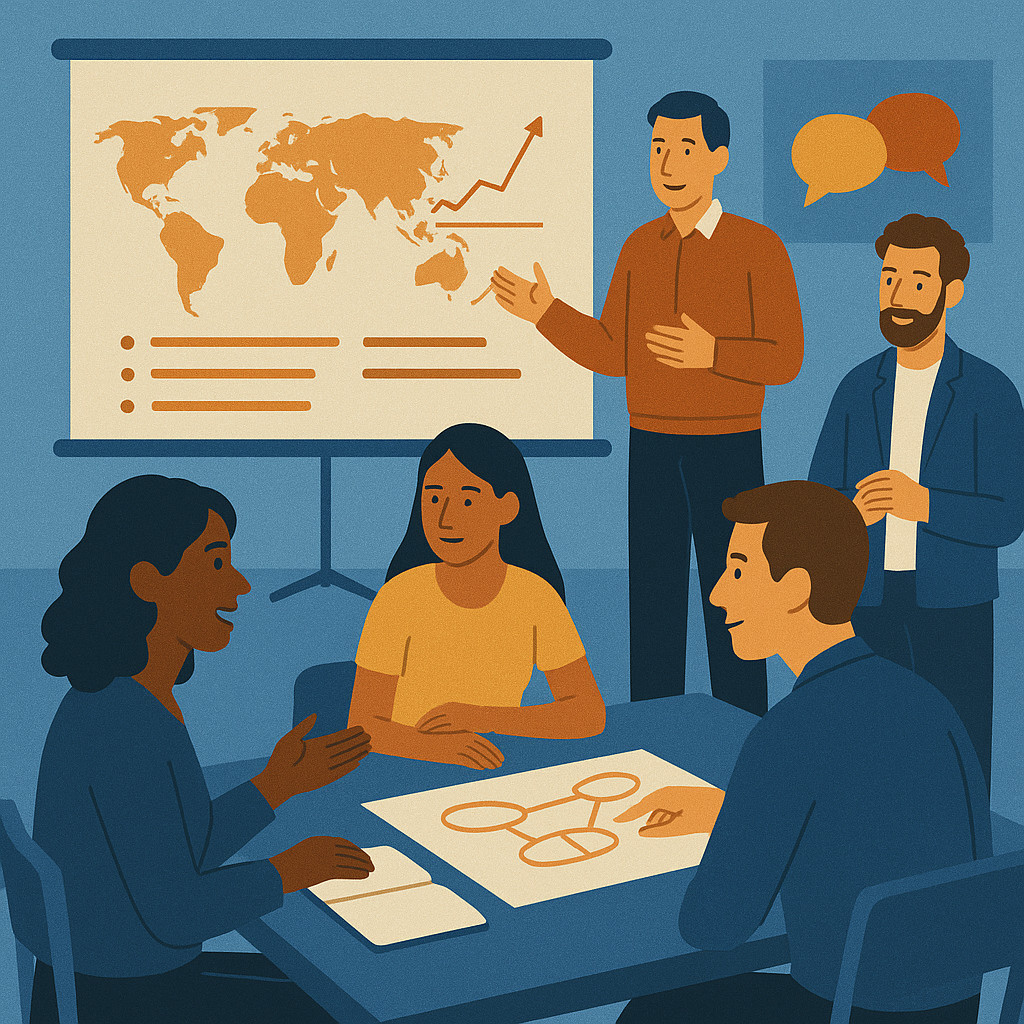
🎓 What will students gain?
- Certificate of participation
- Cross-border team experience
- Actionable ideas for green initiatives at school, university or local level
- Entry into the Eunited.Brussels network for future collaboration
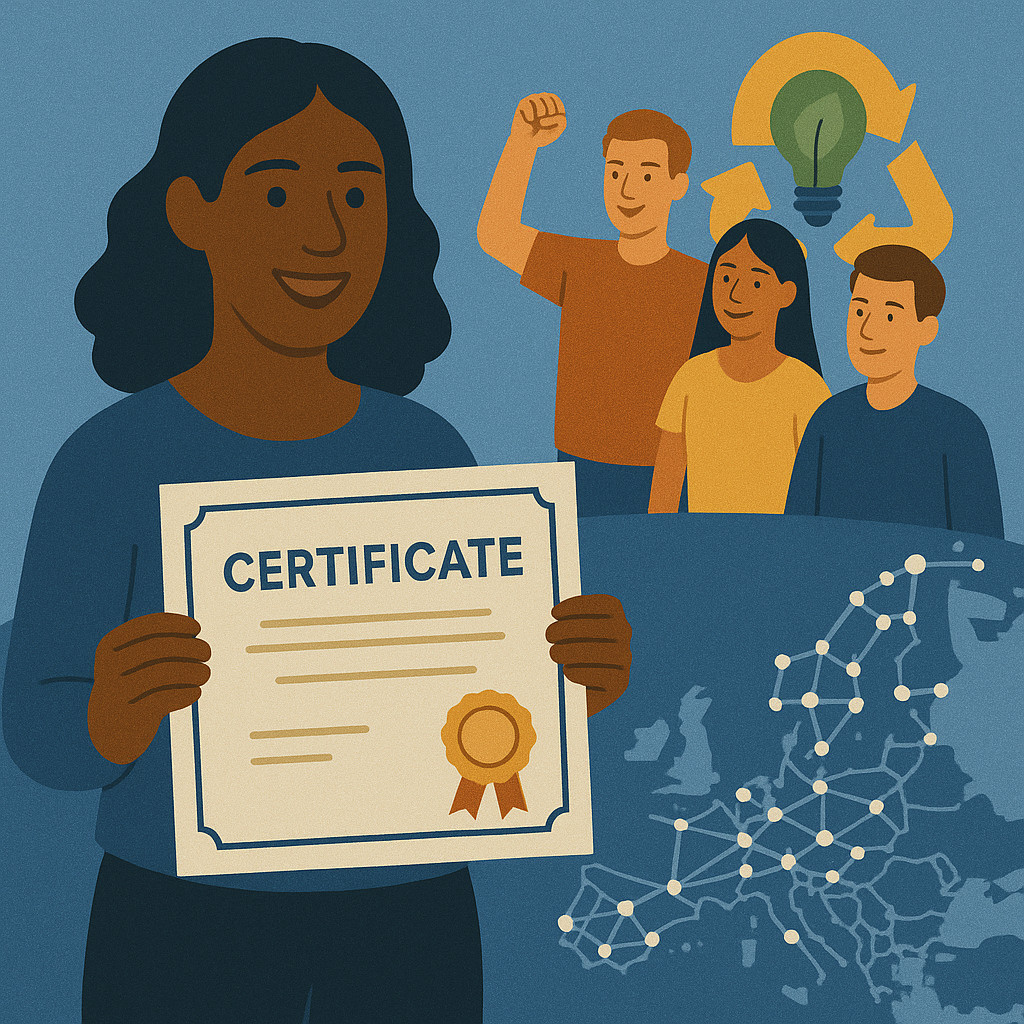
🔧 Practical details
- Hosted in Leuven, Ghent or Antwerp (Belgium)
- Programme delivered in English (Romanian support available)
- Students attend in groups and are accompanied by teacher-coordinators
- Educational, safe, and fully supervised structure
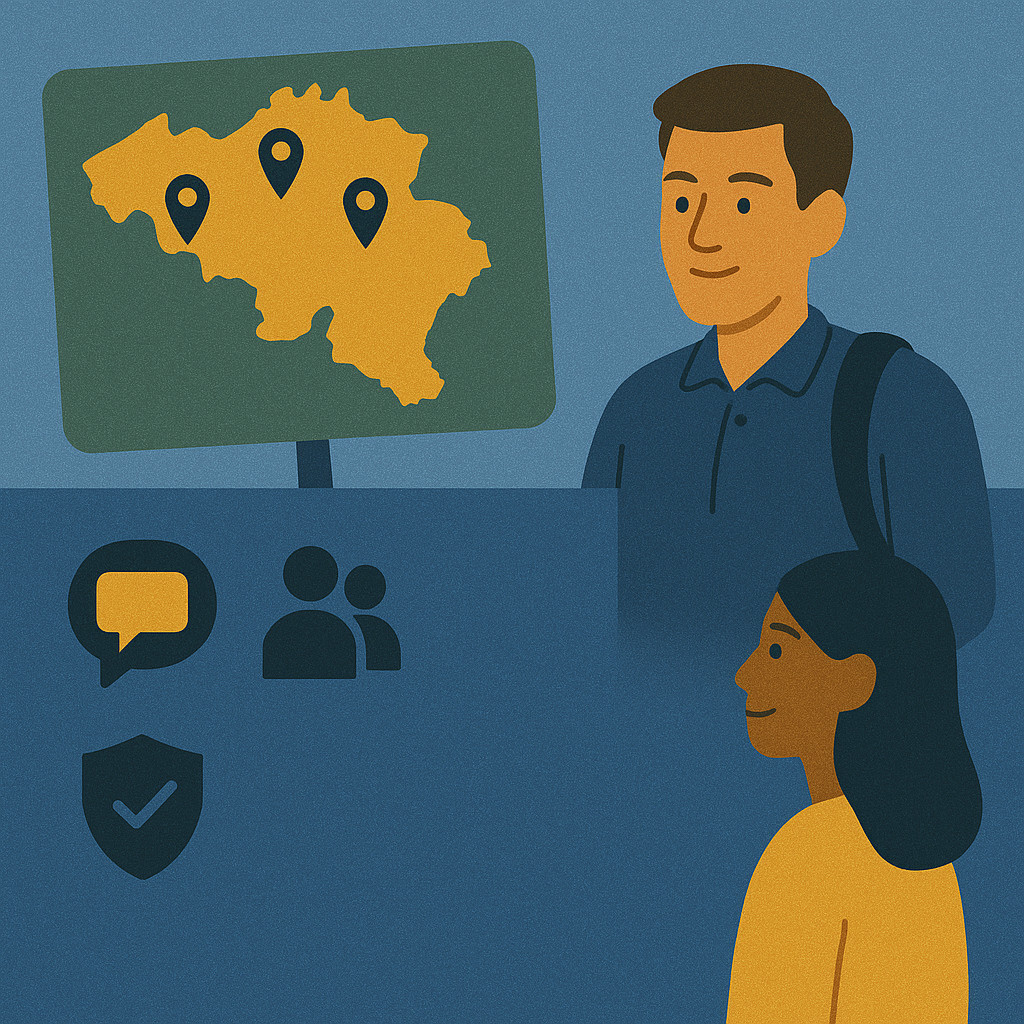
📩 Want to take part?
Whether you are a student, teacher, or school leader interested in joining or partnering with us, reach out. We’d love to hear from you.
Are you ready to go from learning about democracy to defending it?
Learn. Debate. Resist. Repeat.
Digitalisation, AI and Democracy is not a coding bootcamp, a seminar on tech trends, or just another lecture about the future. It’s a space where students like you come together to ask the questions that really matter. Who controls the algorithms that shape our lives? How does artificial intelligence challenge our ideas of fairness and freedom? And what can young people do when technology moves faster than democracy?
Over five days, you’ll dive into the realities of digital transformation in Europe — from how the EU regulates tech giants to how deepfakes, bots and outrage-driven algorithms shape our debates. You’ll learn how AI works, how misinformation spreads, and how people just like you are building tools, policies and movements to make the digital world more just, transparent and human.
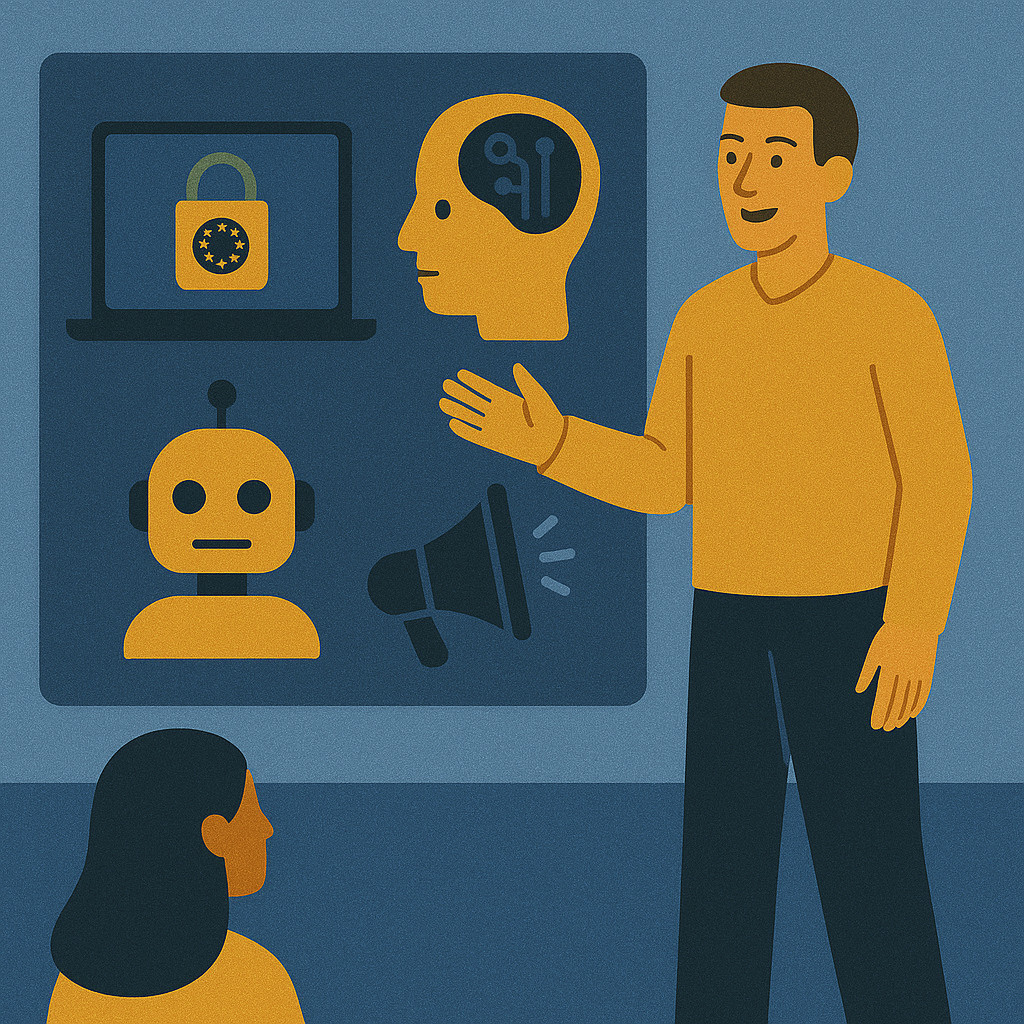
This programme is for students who want more than digital skills — it’s for those who want to understand power, ask better questions, and take responsibility in an age of complexity. You’ll leave not just more informed, but more equipped: with new ideas, a community of peers, and the mindset of a digital citizen who knows they belong at the table — not just behind the screen.
The programme takes place in some of Belgium’s most vibrant and student-friendly cities — Leuven, Ghent, or Antwerp. These are not just beautiful places full of history, culture and energy — they’re also hubs of innovation, sustainability, and European thinking. Whether you’re walking through the medieval streets of Ghent, exploring a green campus in Leuven, or discovering creative districts in Antwerp, you’ll feel part of something bigger: a European experience that mixes learning with exploration, curiosity with connection. It’s not just about what you learn inside the room — it’s also about where you are, who you meet, and how much it inspires you to look at the world differently.
